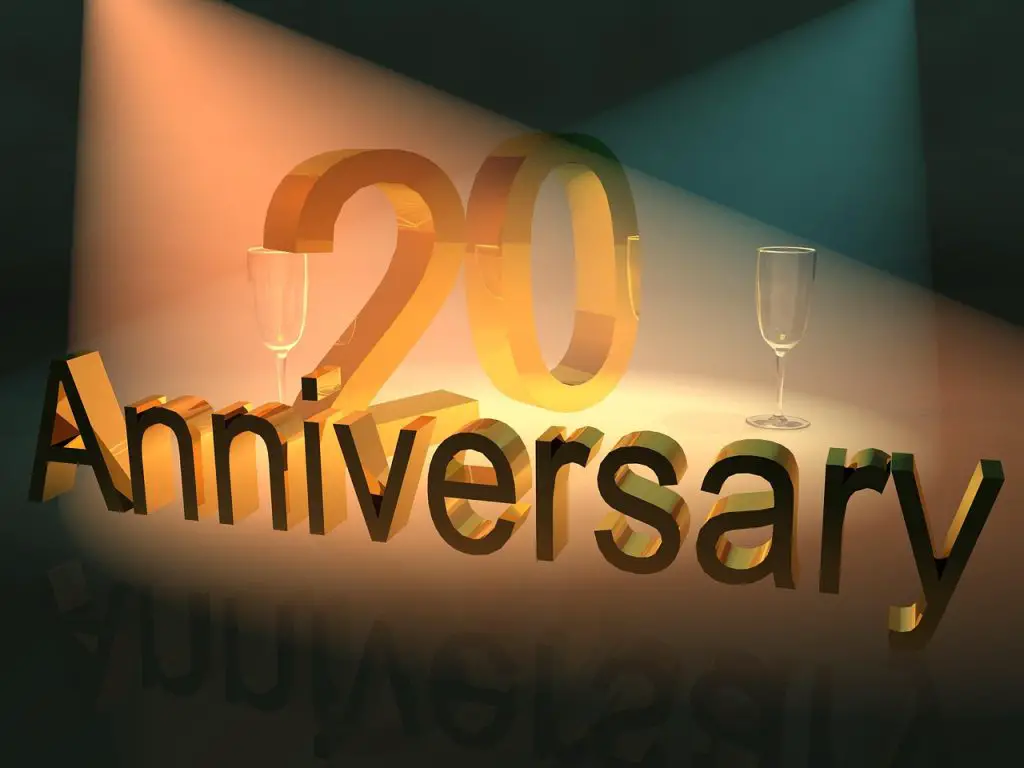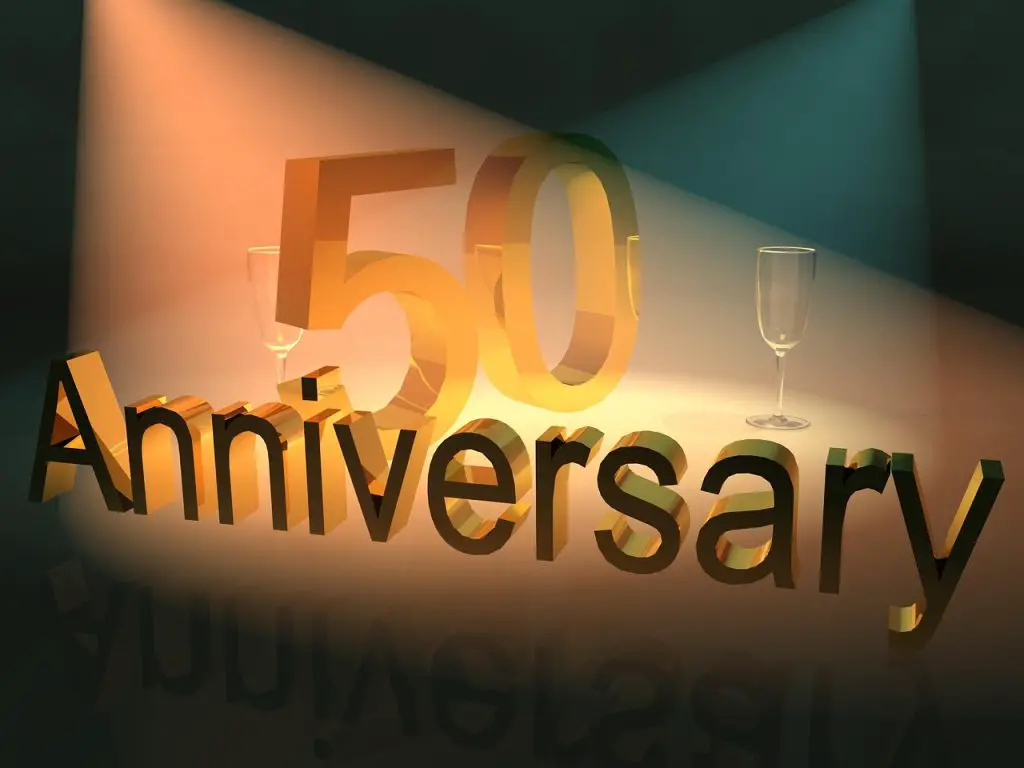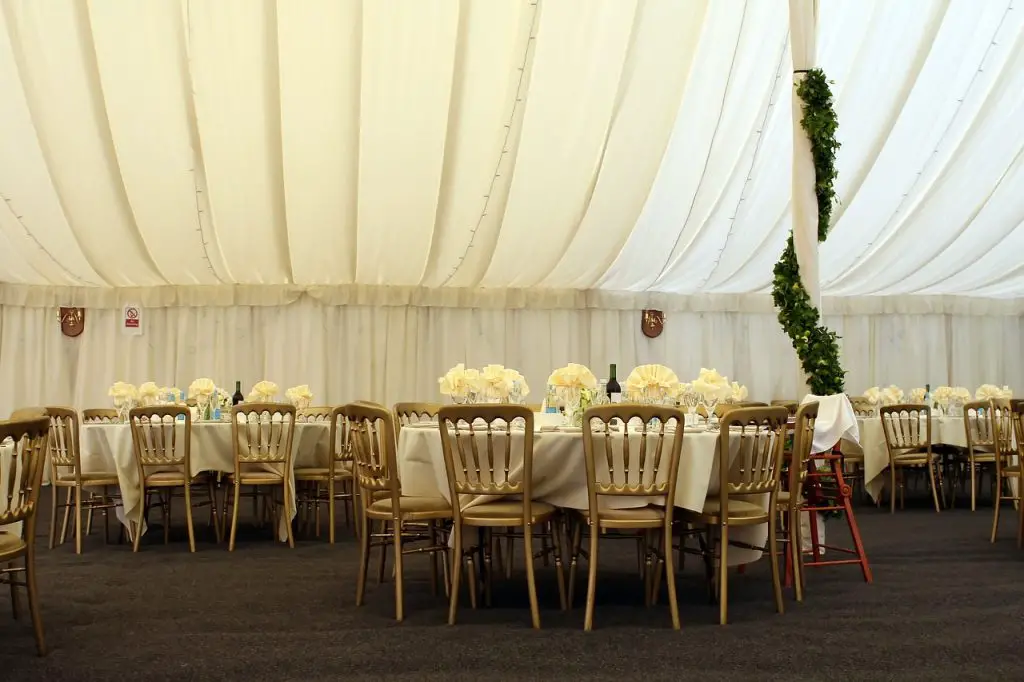Congratulations! It’s time to celebrate the success and hard work that has led your company to reach a significant milestone – its anniversary. Whether you’re approaching your first year or a major milestone like a decade or more, this guide is your go-to resource for planning and executing a memorable celebration. From employee recognition to customer appreciation, we’ll cover everything you need to know to ensure your company anniversary is a resounding success that leaves a lasting impression on everyone involved. Let the festivities begin!

Understanding the Importance of Celebrating Business Milestones
Why Business Milestones Matter
In the fast-paced world of business, it can be easy to overlook the significance of milestones. However, celebrating these milestones is crucial for several reasons. Firstly, it allows us to recognize and appreciate the hard work and dedication that has gone into achieving these milestones. It also motivates and inspires employees to continue pushing towards future success. Additionally, celebrating milestones provides an opportunity for reflection, allowing us to learn from past successes and failures. Lastly, milestone celebrations contribute to the overall company culture, fostering a positive and rewarding work environment.
The Motivational Aspect of Celebration
Celebrating business milestones has a profound impact on employee morale and motivation. When employees see their hard work being recognized and celebrated, it gives them a sense of pride and accomplishment. This motivation translates into increased productivity and a desire to excel further. A well-planned celebration not only boosts morale but also strengthens the bond between employees and the organization. It demonstrates that their efforts are valued and appreciated, leading to enhanced employee satisfaction and retention.
Reflections on Past Successes and Failures
Milestones represent significant achievements in the company’s history, whether they are successful outcomes or learning opportunities from failures. By celebrating these milestones, we provide an opportunity to reflect on the journey and recognize the lessons learned along the way. This reflection not only helps to celebrate successes but also allows us to identify areas for improvement and growth. It is through this reflection that we can evolve and adapt our strategies to better navigate future challenges.
Creating Company Culture with Milestone Celebrations
Milestone celebrations play a vital role in shaping and reinforcing company culture. By recognizing and celebrating achievements, we establish a culture of appreciation and recognition. This fosters a sense of belonging and loyalty among employees, increasing their commitment to the organization. Furthermore, milestone celebrations provide an avenue for employees to come together and forge stronger relationships. It promotes a sense of unity and teamwork, creating a positive and inclusive work environment. By consistently celebrating milestones, we establish a culture of success and celebration that becomes ingrained in the fabric of our organization.
Identifying Significant Business Milestones
Yearly Anniversary Markers
One of the most significant milestones for a company is its yearly anniversary. Each year represents a milestone of growth and sustainability. Celebrating these anniversaries allows us to showcase our longevity and resilience in the competitive business landscape. Whether it’s the first anniversary or the fiftieth, these milestones provide an opportunity to reflect on the company’s journey and express gratitude to employees, customers, and stakeholders for their support.
Significant Achievement Milestones
Every company has specific achievements that mark milestones in its history. These can include securing a major client, launching a successful product or service, surpassing revenue targets, or receiving industry recognition. Identifying these significant achievement milestones is essential to celebrate the hard work and dedication that led to these accomplishments. By acknowledging and celebrating these milestones, we not only recognize individual accomplishments but also inspire others to strive for greatness.
Employee Milestones
The contributions of employees are at the heart of every company’s success. Recognizing and celebrating employee milestones is crucial to show appreciation for their dedication and loyalty. Whether it’s a work anniversary, a promotion, or reaching a specific career milestone, honoring these achievements creates a sense of value and belonging among employees. Employee milestone celebrations serve as a powerful tool for retaining top talent and fostering a positive work culture.
Financial Milestones
Financial milestones are a crucial component of business success. These milestones can include reaching a specific revenue target, achieving profitability, or securing a significant investment. Celebrating financial milestones allows us to recognize the collective efforts of the entire organization in driving financial success. It also instills confidence in stakeholders and demonstrates our stability and growth potential.
Product or Service Milestones
For companies in industries driven by innovation, product or service milestones hold immense significance. These milestones can include launching a groundbreaking product or service, reaching a specific number of customers or users, or receiving positive reviews and feedback. Celebrating these milestones not only showcases our commitment to excellence but also generates excitement among customers and prospects. It provides an opportunity to showcase our unique offerings and differentiate ourselves from competitors.
Planning a Company Anniversary Event
Setting Clear Objectives
When planning a company anniversary event, it is essential to establish clear objectives. Whether it’s celebrating a milestone anniversary or a significant achievement, defining the purpose and goals of the event will guide the planning process. Objectives can range from acknowledging employee contributions and fostering team building to strengthening relationships with customers and attracting media attention. Clear objectives ensure that the event is meaningful and aligns with the company’s overall strategy.
Designing a Budget
A well-planned event requires careful budgeting. Consider factors such as venue rental, catering, entertainment, decorations, and marketing materials. Allocating resources based on budget constraints ensures that the event remains financially viable. It is important to strike a balance between creating a memorable experience and being fiscally responsible.
Choosing a Suitable Venue
Selecting the right venue sets the tone for the anniversary event. Consider factors such as capacity, location, ambiance, and accessibility. The venue should be able to accommodate the number of guests expected, provide the desired atmosphere, and align with the event’s theme. Conducting site visits and obtaining quotes from multiple venues will help in making an informed decision.
Picking a Theme
Choosing a theme adds depth and cohesion to the anniversary event. The theme can reflect the company’s values, industry, or specific achievements. It sets the tone for the event and guides decisions regarding decorations, dress code, and entertainment. A well-chosen theme fosters a sense of excitement and engagement among attendees.
Deciding on Entertainment and Activities
Well-planned entertainment and activities contribute to the overall success of the anniversary event. Consider options such as live performances, guest speakers, interactive games, or employee recognition ceremonies. Tailor the entertainment and activities to align with the event’s objectives and the preferences of the attendees. Interactive elements promote engagement and create lasting memories for guests.
Inviting Key Participants
Identifying Important Guests
When inviting guests to a company anniversary event, it is important to identify and prioritize key participants. This can include employees, stakeholders, customers, industry partners, and local dignitaries. By inviting important guests, we acknowledge their contribution to the company’s success and strengthen relationships. It is essential to compile a comprehensive guest list and send targeted invitations to ensure the presence of key individuals.
Creating Invitations
Invitations set the tone for the anniversary event and provide essential details to the guests. Create visually appealing invitations that reflect the theme and objectives of the event. Clearly mention the date, time, venue, and RSVP details. Personalize invitations for key guests to convey their importance to the company. Send invitations well in advance to allow guests sufficient time to respond.
Setting an RSVP Process
An efficient RSVP process is crucial for event planning and logistics. Clearly communicate the RSVP deadline and provide multiple response options such as phone, email, or online forms. Regularly track and update the guest list based on received responses. Use the RSVP process to gather dietary restrictions, preferences, and any additional information necessary for a seamless event experience.
Planning for Remote Participants
In today’s globalized world, it is common to have remote participants who cannot attend the anniversary event in person. To ensure their involvement, consider leveraging technology to connect remote participants. This can include live streaming the event, setting up virtual meeting rooms, or sending personalized messages and recorded speeches. By including remote participants, we demonstrate inclusivity and extend the celebratory spirit beyond physical boundaries.

Celebrating Employee Contributions
Importance of Employee Recognition
Employee recognition is a fundamental element of a successful company culture. Recognizing and celebrating employee contributions not only boosts morale but also inspires loyalty and fosters a positive work environment. Employees who feel appreciated are more engaged, productive, and committed to the organization’s success. By celebrating employee contributions during milestone events, we reinforce the value placed on their hard work and dedication.
Methods of Employee Celebration
There are various methods to celebrate employee contributions during milestone events. This can include presenting awards, giving speeches or shout-outs, highlighting individual achievements, or organizing team-building activities. Showcasing employee success stories and testimonials during the event adds a personal touch and creates a sense of pride among employees. Tailor the celebration methods to align with the company’s culture and the preferences of the employees.
Facilitating Peer Appreciation
Peer appreciation is a powerful tool that enhances employee engagement and camaraderie. Encourage employees to express their appreciation for their colleagues’ contributions during the anniversary event. This can be through formal recognition programs or informal discussions and activities. By facilitating peer appreciation, we foster a supportive and collaborative work environment where employees feel valued and acknowledged.
Including Customers in the Celebration
Customer Appreciation Strategies
Customers are the lifeblood of any business, and celebrating business milestones provides an opportunity to show gratitude for their loyalty and support. Implement customer appreciation strategies such as personalized thank-you notes, exclusive discounts, or special events for loyal customers. These gestures not only strengthen customer relationships but also generate positive word-of-mouth and brand advocacy.
Involving Customers in the Anniversary Event
Involving customers in the anniversary event creates a unique and memorable experience for both the company and its loyal customer base. Invite select customers to attend the event and give them the opportunity to share their success stories or testimonials. Incorporate interactive elements such as customer-focused activities or demonstrations to engage attendees. By including customers, we demonstrate the importance placed on their partnership and celebrate their role in the company’s success.
Offering Special Deals or Discounts
Special deals or discounts can be offered during milestone celebrations to further engage and reward customers. This can include limited-time promotions, exclusive discounts, or bundled offers. By providing these incentives, we encourage customer participation in the celebration and increase sales. It also fosters customer loyalty and creates a positive impression of the company.

Building Anticipation for the Event
Marketing the Event
Effective marketing is critical to generate excitement and anticipation for the anniversary event. Use various marketing channels such as email newsletters, social media, company website, and press releases to spread the word about the upcoming celebration. Highlight the significance of the milestone and the unique elements of the event. Utilize eye-catching visuals and compelling messaging to capture the attention of the target audience.
Using Social Media for Promotion
Social media platforms offer a powerful way to engage with a wide audience and create buzz around the anniversary event. Share event teasers, behind-the-scenes moments, and highlights from past milestones to build anticipation. Encourage employees and customers to share their excitement on social media using event-related hashtags. Leverage social media influencers or industry partners to extend the reach and visibility of the event.
Creating a Countdown to the Event
A countdown to the event creates a sense of urgency and anticipation among employees, customers, and stakeholders. Utilize various channels such as email newsletters, social media posts, or a dedicated website widget to showcase the countdown. Update the countdown regularly to maintain excitement and remind attendees of the approaching celebration.
Commemorating the Event
Creating Commemorative Products
Commemorative products serve as tangible reminders of the anniversary event and its significance. These can include customized merchandise such as t-shirts, mugs, or keychains, featuring the company’s logo or anniversary logo. Commemorative products can be distributed to attendees as part of event swag or offered as limited-edition items for purchase. They serve as lasting mementos and create a sense of pride among employees and customers.
Establishing an Anniversary Logo
Creating an anniversary logo adds a distinctive element to the event and strengthens the brand’s identity. The anniversary logo can incorporate elements such as the company’s logo, milestone number, and relevant imagery or colors. It should be visually appealing and easily recognizable. Use the anniversary logo across marketing materials, invitations, and commemorative products to unify the event branding.
Organizing Photo and Video Coverage
Capturing the memories of the anniversary event is essential for future reflection and documentation. Hire professional photographers and videographers to cover the event and ensure high-quality photos and videos. Encourage attendees to share their own photos and videos on social media using event hashtags. This content can be used for post-event follow-ups, marketing collateral, or even future milestone celebrations.
Post-Event Follow-ups
Thanking Participants
Expressing gratitude to attendees is crucial to maintain positive relationships and leave a lasting impression. Send personalized thank-you notes or emails to all participants, acknowledging their presence and contribution to the anniversary event. Highlight specific moments or achievements from the event that made it memorable. Thanking participants reinforces their importance to the company and strengthens the bond between the organization and its stakeholders.
Sharing Event Highlights
Share the highlights and key moments from the anniversary event with a broader audience. This can be done through blog posts, social media posts, or company newsletters. Utilize photos, videos, and testimonials to showcase the success and impact of the event. Sharing event highlights not only reinforces the celebration but also generates positive publicity and showcases the company’s achievements to a wider audience.
Assessing Success against Objectives
Evaluate the success of the anniversary event based on the objectives set at the planning stage. Analyze attendee feedback and track key performance indicators such as attendance rate, customer engagement, or media coverage. Compare the outcomes against the objectives to identify areas of improvement or further opportunities for growth. This assessment provides valuable insights for future milestone celebrations and informs the company’s overall strategy.
Leveraging the Celebration for Future Success
Utilizing Positive Publicity
The positive publicity generated from milestone celebrations can be leveraged to strengthen the company’s reputation and brand visibility. Share event highlights with the media through press releases or media pitches. Collaborate with industry influencers or thought leaders to further amplify the event’s impact. Utilize the positive publicity to attract new customers, investors, or strategic partnerships. The celebration becomes more than just a milestone event but a platform for future success.
Building on Accomplishments
Milestone celebrations provide an opportunity to reflect on past accomplishments and build on them for future success. Identify the strategies, processes, or innovations that led to the milestone and assess their potential for further growth. Use the celebration as a springboard to set new goals, develop new products or services, or expand into new markets. By building on previous accomplishments, we continually push the boundaries of success and propel the company towards greater achievements.
Planning for Future Milestones
Milestone celebrations serve as a reminder that success is an ongoing journey. Plan for future milestones by setting a roadmap that outlines key objectives and milestones to be achieved. Regularly review and update the roadmap to align with changing market conditions and business priorities. By actively planning for future milestones, we ensure that each celebration is built upon a strong foundation and contributes to the long-term success and sustainability of the company.
In conclusion, celebrating business milestones is a powerful way to recognize achievements, motivate employees, and create a positive company culture. By identifying significant milestones, planning memorable events, and involving key participants, companies can leverage these celebrations to drive future success. With careful planning and execution, milestone celebrations become much more than just a way to mark time – they become catalysts for growth, innovation, and lasting impact. So, embrace the power of celebrating milestones and unlock the full potential of your organization.

